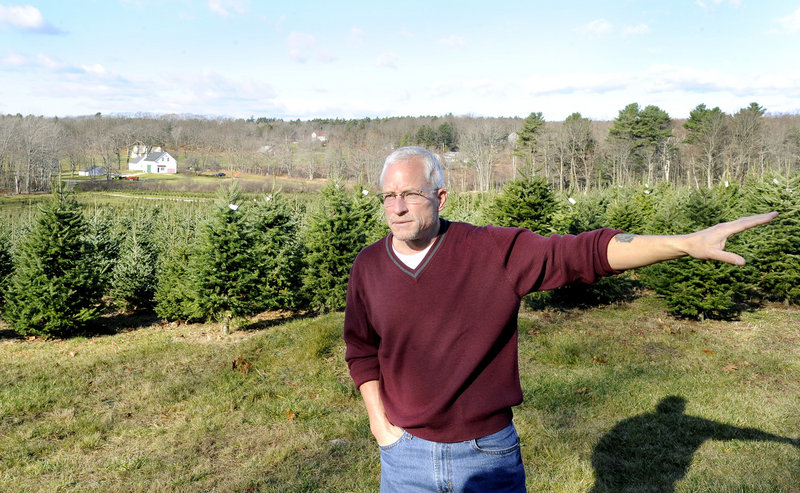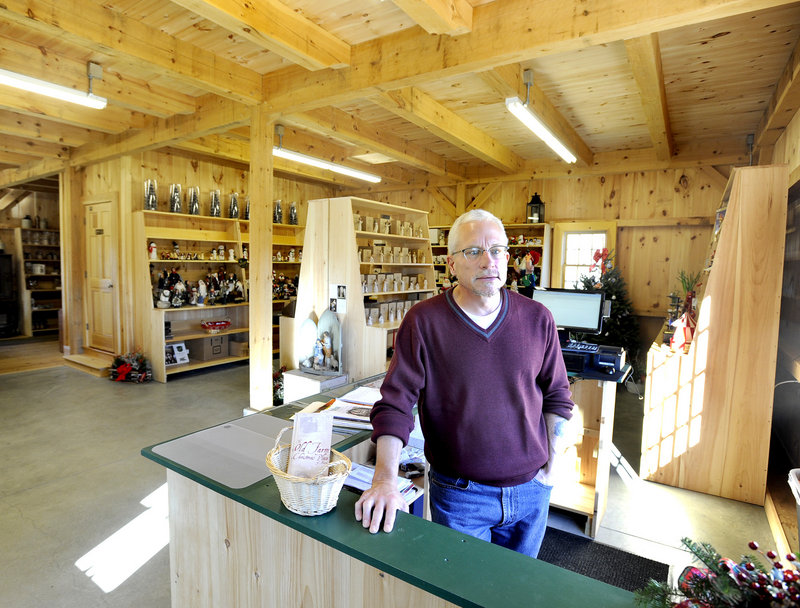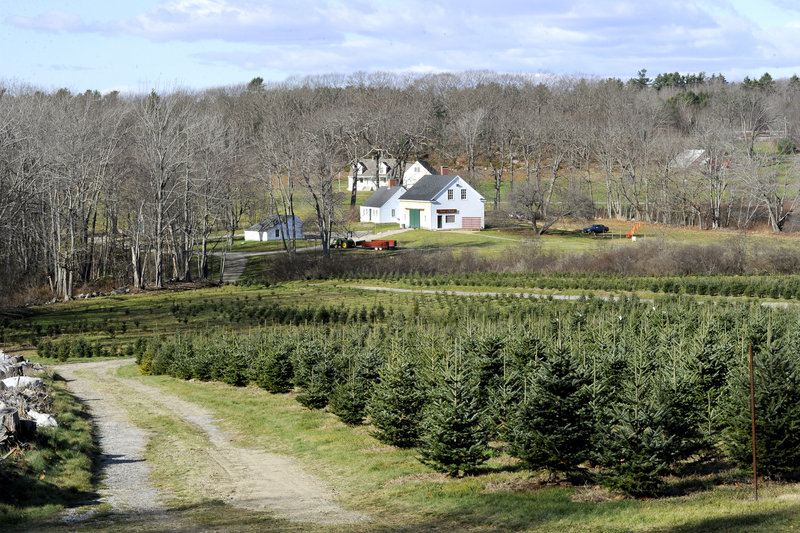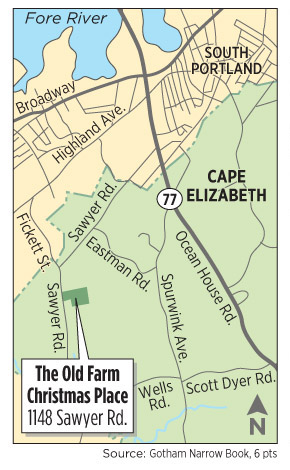CAPE ELIZABETH – One of the town’s oldest properties is now home to one of its newest businesses.
The Old Farm Christmas Place opened its tree farm and shop to customers earlier this month, nearly a decade after Jay Cox bought the historic Dyer-Hutchinson farmhouse on Sawyer Road.
He has renovated the Cape Cod-style house that has stood on the property since the 1790s, built a timber-frame barn and other structures, cleared the fields and planted neat rows of balsam firs on the rolling landscape.
Visitors can take a wagon ride to the top of the hill, where they can tag and cut the trees that are ready for harvest. The sales shack offers hot chocolate, and marshmallows for roasting in a nearby fire pit.
From that perch on the 50-acre property, Cox explained some of the work it took to get to this point.
He had the road put in and brought in loggers to clear the land. He installed an irrigation system — essentially a giant sprinkler — to help control the population of spider mites, which thrive in dry conditions and suck the fluid from the trees’ needles.
Each bare-root transplant — there are now 18,000 trees on the property — was planted by hand. Each tree needs weeding and mowing around it, and someone to control the leader growth and refine its shape.
Some of the work has been monotonous and back-breaking, but Cox would like to run his farm full time. He spends a few months each year in Alaska, as captain of a pollock trawler.
Cox, 49, was living in Seattle when he started planning his return to Cape Elizabeth, where both sides of his family have roots. Because his father was a Marine, the family moved around a lot. They settled in Cape Elizabeth in time for Cox to go to high school here.
His parents, Jim and Evelyn, ran their own Christmas tree operation, Dun Roamin Farm, nearby on Sawyer Road. They now make wreaths for their son’s business.
In addition to meeting his business needs, the 50-acre property — purchased for $300,000 — was appealing to Cox because of its history.
Built as a homestead by William Dyer, it was acquired by Edwin Hutchinson in 1875 and remained in the hands of his descendants until 1993. The house retained many of its original features, including woodwork and the large fireplace at its center.
It was so unaltered over time that it didn’t even have indoor plumbing when Cox bought it. A hose provided water for the kitchen sink, water had to be carried up to a bathtub upstairs and an outhouse was in a run-down ell.
Cox could see beyond the lack of modern amenities, the aging siding and plaster, and the brush that had grown in all the way up to the house.
“The house was beautiful. It was a diamond in the rough,” he said.
The previous owner, Thomas Hinkle of Portland, also recognized how rare such a property was. Hinkle, a house restorer who bought it as a project in 1993, granted a preservation easement to Maine Preservation and a conservation easement to the Cape Elizabeth Land Trust.
“It really is a house that has changed very, very little. Really, the life in the house was similar to the 19th century, and in some ways older than that,” he said.
Cox tore down the old ell and replaced it with additions that hold a modern kitchen, a bathroom and bedrooms and connect to the barn. With its pull-out shutters, wide floorboards and low ceilings, the original house still feels like it’s from a different time.
The renovation made it a fresher, cleaner version of itself, especially compared to the half-story upstairs that looks the way it did when Cox bought the property.
As the easement holder, Maine Preservation reviewed and approved Cox’s construction plans. Greg Paxton, the organization’s executive director, said the key is finding the middle ground between preserving significant historical features and allowing new construction that can be suitable.
“This is not a museum,” he said. “That’s an important distinction to make. We want to preserve the building, but we want to make sure it’s being used with a purpose consistent with its original use.”
Christopher Franklin, executive director of the Cape Elizabeth Land Trust, said Cox is carrying on a family tradition in a way that’s mindful of history.
“He cares a lot about that land,” Franklin said. “He’s investing not only a lot of capital into it, but a lot of his sweat into it, which is going to make it a special place.”
Staff Writer Ann S. Kim can be contacted at 791-6383 or at:
akim@pressherald.com
Copy the Story Link
Send questions/comments to the editors.






Success. Please wait for the page to reload. If the page does not reload within 5 seconds, please refresh the page.
Enter your email and password to access comments.
Hi, to comment on stories you must . This profile is in addition to your subscription and website login.
Already have a commenting profile? .
Invalid username/password.
Please check your email to confirm and complete your registration.
Only subscribers are eligible to post comments. Please subscribe or login first for digital access. Here’s why.
Use the form below to reset your password. When you've submitted your account email, we will send an email with a reset code.